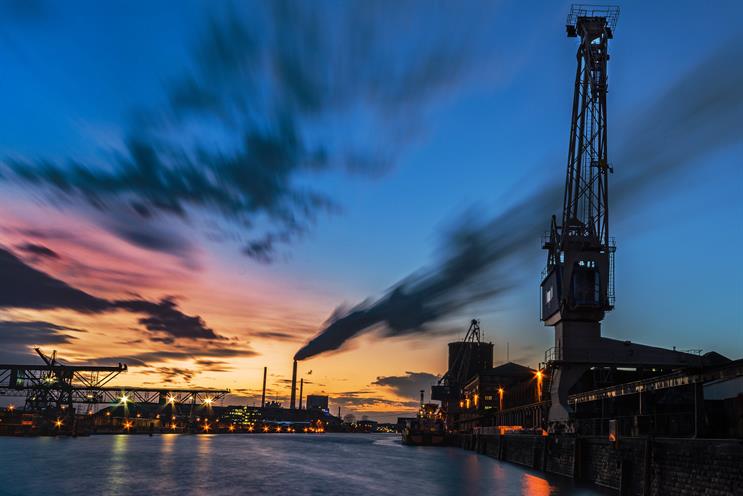
The Guardian announced last week that it would no longer accept ads from fossil fuel extractive companies across any of its websites, apps or print products.
It is thought the decision will cost the publisher in the region of £500,000 annually, which is, frankly, a drop in the bucket compared with the £90m ad revenue that GMG took in last year.
But don't be tempted to dismiss this as a short-term PR move. Brand purpose matters greatly for news brands, whose content is always seen through the lens of politics. More so for left-wing ones such as The Guardian, whose brand campaign "Hope is power" deployed an elegant creative spot that conveyed how it is willing to take a stand on issues that really matter.
In short, this move is "on brand" for an organisation that wants to take a lead on highlighting climate change as a serious societal issue.
But how many more media owners will make similar moves? The vast majority of media owners position themselves as non-political, but will a greater pressure to demonstrate brand purpose encourage the likes of TV broadcasters, radio brands and outdoor companies to start boycotting particular advertiser groups?
Two of the most prominent energy companies, Shell and BP, would not comment on this question when asked by ±±ľ©Čüłµpk10. Nor, in fact, would many ad agency executives – this should be an indication of how tricky this issue is for media owners.
 Zaid Al-Zaidy
Zaid Al-Zaidy
Founder and group chief executive, The Beyond Collective
It’s totally right for brands and companies to do what’s within their power to tackle climate change. The difficulty here isn’t the position The Guardian has taken; rather where they’ve taken aim. "Fossil fuel" advertisers will feel the decision is unfair and, in response, they will promote the wonderful things they do and employ PR agencies to lobby and fuel the debate around where immoral or unethical actions and associations begin and end. Equally, The Guardian recognises that "some readers would like us to go further, banning ads for any product with a significant carbon footprint, such as cars or holidays". In my view, they have set a brave new precedent which others must follow, even though there’s clearly no pleasing everyone. Afterall, inertia will be the death of us all.
 Jonathan Wise
Jonathan Wise
Co-founder, Purpose Disruptors
The question runs deeper than this. Is it irresponsible for any media owner, media agency, creative agency or any sort of agency to accept money from fossil fuel companies?
How to answer this thorniest of questions? What about the radical idea of asking people to decide?
Present the facts about fossil fuel companies and your business objectives to the whole company, along with the pros and cons of taking the money. Through facilitated debate, encourage employees to share their hopes and fears, and collectively decide what the organisation should do. Trust that employees will make the right choice that balances responsibility towards the company with respect for the planet and future generations. Let people decide the future they want to create together.
 Laura Jordan Bambach
Laura Jordan Bambach
Chief Creative Officer, Mr President
I applaud The Guardian and their stance on the climate emergency. Media owners have a huge responsibility for both the content they distribute and the advertising that funds it. They say it's not a principle until you lose money over it and there’s unforgivable hypocrisy in supporting truth and progressive values whilst taking money from those that undermine them. Not only will this make The Guardian’s brand stronger, but with more revenue now coming from their readership than advertising it’s only going to strengthen their bottom line too. A great outcome of the good work they’ve done building their platform and values under the leadership of Katharine Viner.
 Phil Smith
Phil Smith
Director-general, ISBA
Every company, organisation and individual has a role to play in assisting the UK in reaching its net zero targets. We are working with all of our brand members to ensure that ISBA and the advertising sector is collectively stepping up to play its role.
While ISBA respects that advertising policy decisions will be taken by individual publishers in the light of their readers’ wishes, we do not support attempts to ban all advertising from individual sectors. Brands have a vital role to play in delivering and promoting positive environmental change.
 Jon Tipple
Jon Tipple
Global chief strategy officer, FutureBrand
It’s good news that brands are increasingly keen to demonstrate their ESG [environmental, social and corporate governance] credentials very publicly, but some initiatives risk appearing like thinly veiled attempts to win sales, all wrapped in a nice, green flag. A brand’s purpose is for life and so it needs to be fully thought through and comprehensively applied.
How does The Guardian’s ad ban align with The Scott Trust’s value of "treating everyone with respect"? Will they stop using the chemicals the oil and gas industry produces to print their newspapers every day? Can Guardian employees still drive diesel cars? What if you’re a Guardian reader who works for BP?
A headline looks great; living up to it every day takes a lot more effort.




.jpg)
.jpeg)
